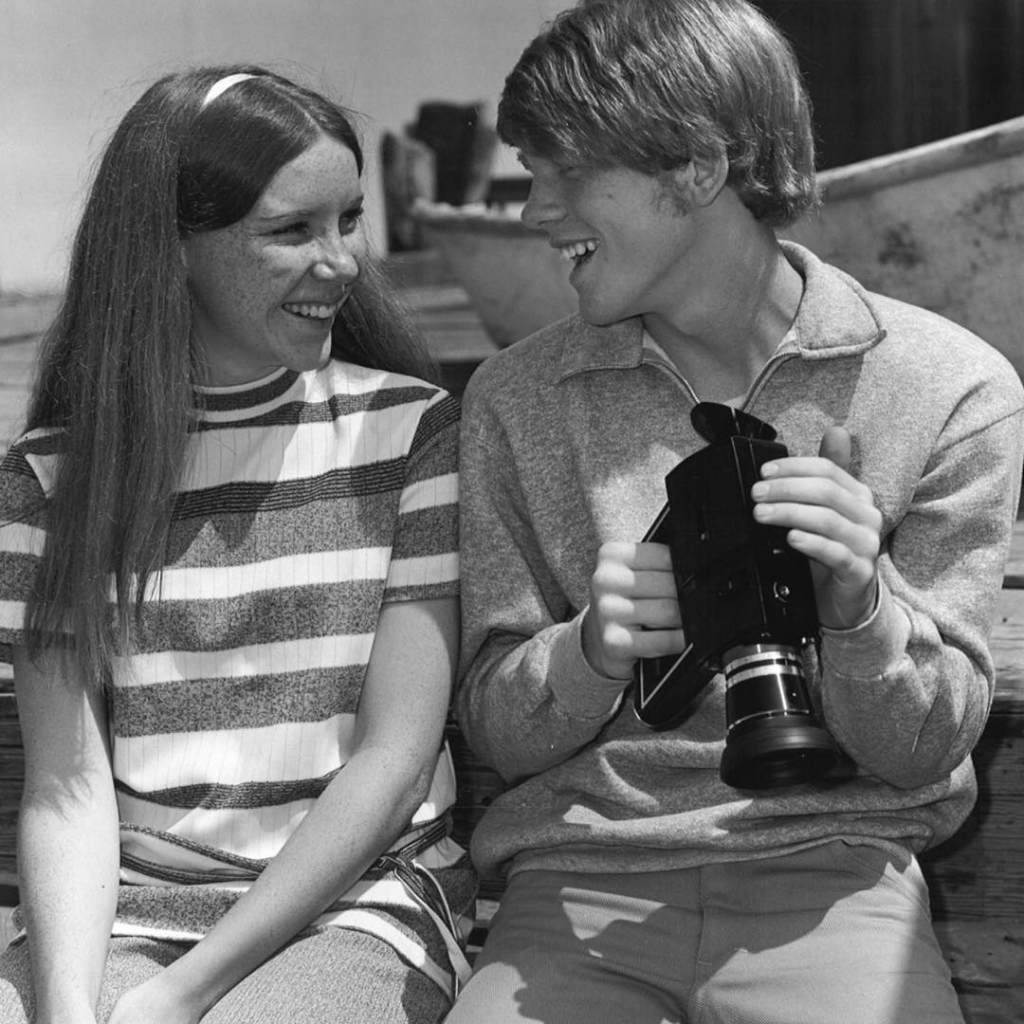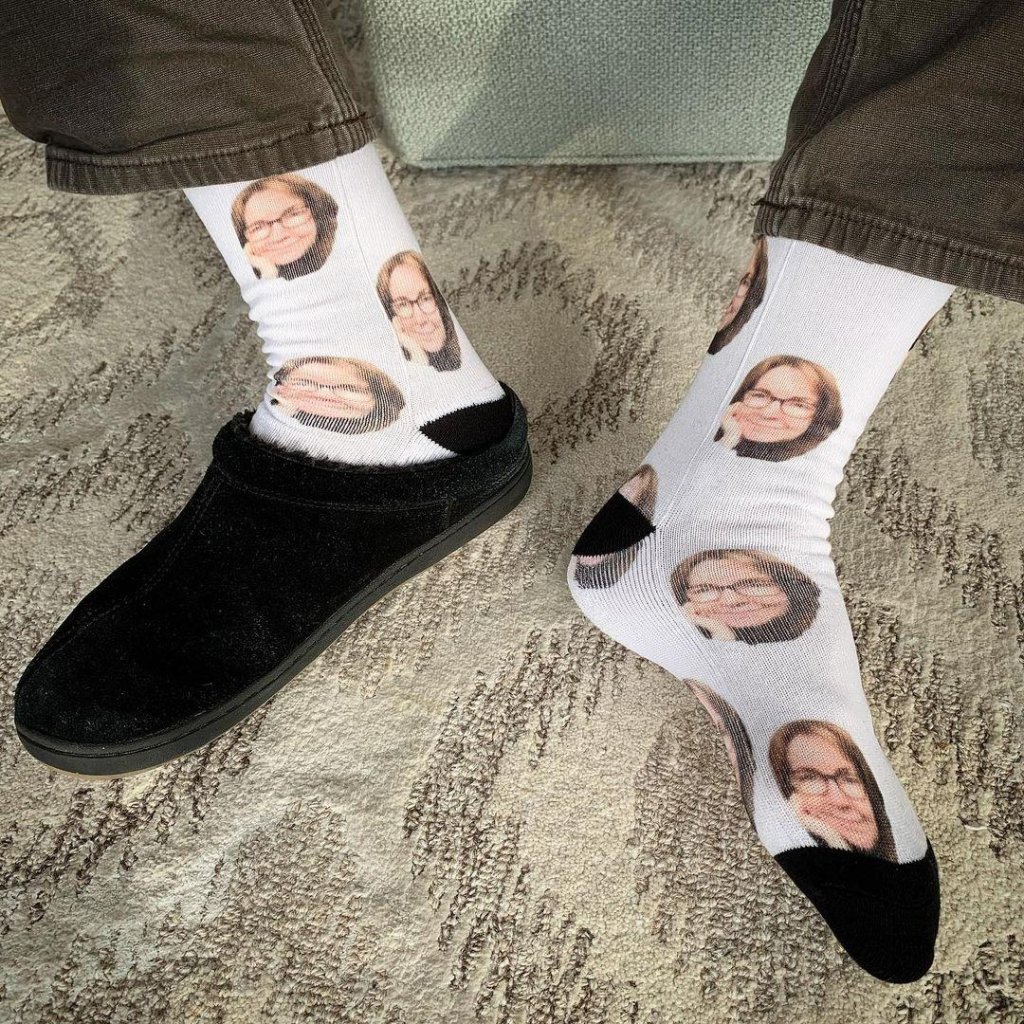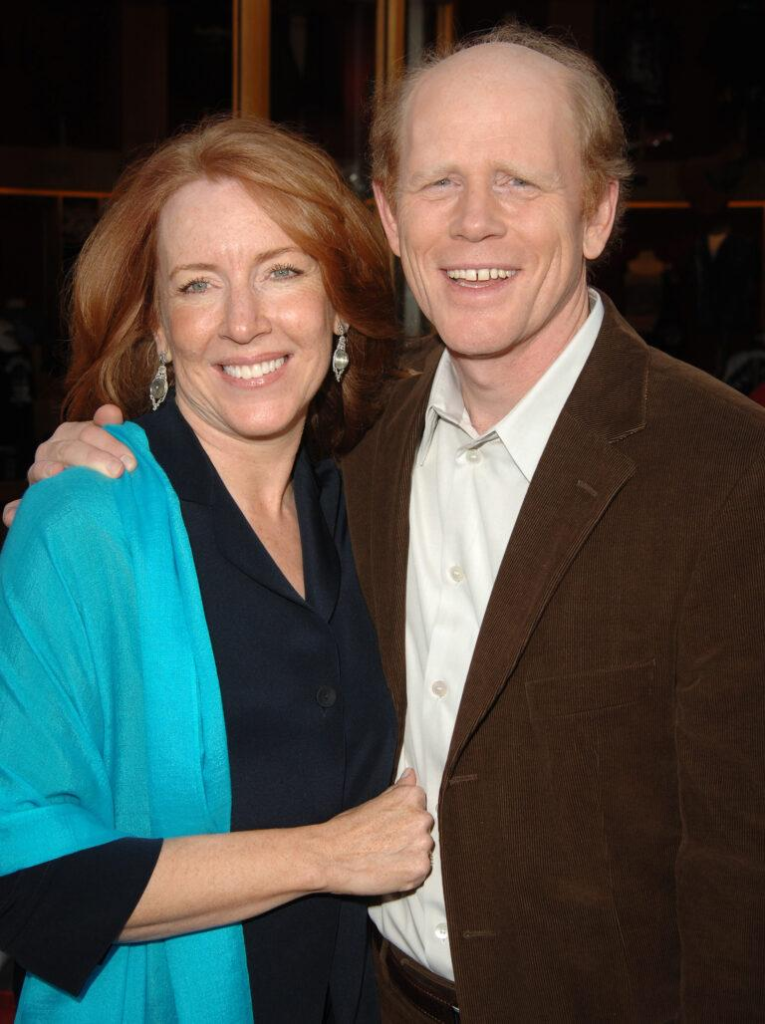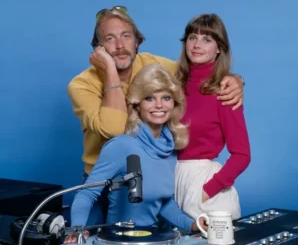“Remember how we always said, ‘You can do it if you want, but you don’t have to?’ Well if you start this, you can’t quit’,” said Howard, recalling a conversation he had with his parents decades before. “You don’t have to do other parts on other shows, if you don’t want, but you’d have to keep doing this one.”

Explaining that he understood the message his parents were delivering, Howard adds, “I think it was pretty clear at that point that I was enjoying it, and I was good at it.”
Actually, he was great at it, and he was about to reach a level of stratospheric stardom.
Howard’s ‘Happy Days’
While starring in The Andy Griffith Show, Howard also appeared on the big screen in 1962’s The Music Man, a musical film that was a huge commercial success.
A natural talent, he then starred in 1973’s American Graffiti, which also starred Harrison Ford, Richard Dreyfuss and Cindy Williams, whom he would work alongside in the future.

It was in 1974 when he was cast as Richie Cunningham in a new series created by Garry Marshall called Happy Days, which appeared on TV screens in homes across the world from 1974 to 1984.
The TV show spawned a few popular spin-offs like Laverne & Shirley, starring Williams and Marshall’s sister Penny, and Mork & Mindy with Robin Williams as Mork, the favorite Orkan.
High school sweetheart
It was in 1970 – before he won a Golden Globe for his performance as the innocent teenager on Happy Days – that Howard met the high school sweetheart, Cheryl Alley, whom he would marry in 1975.

“I met her, and there was never anybody else,” Speaking with People, the director of the Da Vinci Code continued, “She’s unbelievably supportive and always has been. Our compatibility has endured through all kinds of experiences.”
After 50 years of shared experiences, Howard, who earned an Oscar for directing A Beautiful Mind, commemorated the 50th anniversary of his first date with Cheryl on Instagram.

“Nov 1 1970 Cheryl & I went on our 1st date,” he wrote alongside a photo of himself wearing socks with images of Cheryl’s face. “We went to see a re-release of Stanley Kramer’s It’s a Mad Mad Mad World and then got some pizza at now defunct Barnone’s in Toluca Lake. Quite a start, right?”
He also shared their plans that day, “We’ll be driving in the same ‘70 VW Bug I picked Cheryl up in 5 decades ago. It runs great. So do we.”
His ‘good luck charm’
Cheryl made several cameos in Howard’s projects and even played herself on the TV comedy series Arrested Development, produced and narrated by Howard.
Speaking with the Television Academy, Ron called Cheryl his “good luck charm,” and explained that is why she appears in every film he makes.

“At a certain point, I became very superstitious about making sure that she appears, that she’s at least identifiable in one frame,” he said. “They don’t have to be big cameos, but she’s gotta be in there.”
In addition to bringing her husband some luck, Cheryl is also a published author who holds a bachelor’s degree in psychology and a master’s degree in screenwriting.
The power couple are grandparents to six children and the parents of four, daughter Bryce, twins Paige and Jocelyn and son Reed.

Bryce – a recognizable actor – is known for roles in movies like Jurassic World and The Help, while Paige made her feature film debut in the 2009 movie Adventureland. Since she’s appeared in films The Employer and Collection.
Reed is a professional golfer and Paige’s twin sister Jocelyn is very private.
The secret to longevity
Nearing their 49th anniversary on June 7, the Emmy Award-winning producer shares that “communication” is the secret to their enduring love.

“People say, ‘How’d you do it?’ There’s no technique,” Howard tells People. “There’s no tactic, other than communication is really important. You have to learn to communicate and have difficult conversations in constructive ways. Beyond that, there’s an element of luck because people either grow together or they don’t and I don’t think you can force that.”
The Unlikely Friendships Between Dogs and Other Animals

Although they’ve long been regarded as man’s best friend, did you know that dogs can become friends with other animals as well? You’ll grin when you see these endearing relationships between dogs and all kinds of wildlife. Let’s enjoy some of these precious moments that were caught on video.
Ducks and Dogs: An Ageless Bond

As evidenced by this cute picture of Rusty the cocker spaniel offering Donald the duck a ride on his back, our furry pals have been buddies with ducks since 1949. Ducks and dogs share a unique kinship that endures over time.
Dogs and Monkeys: Picking Up Tips from the Finest

A touching event occurred in the busy Bangladeshi capital of Dhaka when a monkey gave a firm hug to its adopted puppy buddy. This loving demonstration between two distinct animals illustrates the strength of friendship and love.
Piglets and French Bulldogs: An Unbreakable Bond

Baby, a French bulldog at the Lehnitz animal refuge in Germany, discovered that cuddling piglets was his true calling. Six little piglets and Baby struck up a conversation right away. These endearing exchanges serve as a reminder that friendship has no bounds.
Ducks and Dogs: Lifelong Playmates

This adorable picture shows the amazing friendship between Barclay the dog and Rudy the duck. When the two are together, they frolic and leap, demonstrating the unadulterated happiness that may result from strange friendships.
French Bulldogs and Tigers: Cuddling Together

A French bulldog named Bella provided a two-week-old young tiger cub with loving care in Japan. When the cub’s mother rejected it, Bella intervened to make sure the little tiger didn’t feel abandoned. This touching demonstration of interspecies empathy highlights the generosity present in the animal realm.
Dogs and Elephants: A True Friendship’s Tail

At the Tennessee Elephant Sanctuary, most interactions between humans are restricted, but Bella the dog discovered a unique opening. She developed a close relationship with Tarra the elephant, and the two would frequently follow one another about and even share a bed. This endearing bond serves as a reminder that love is unconditional and unaffected by size or species.
These are Only the First Steps…

There are countless touching stories of dogs and other animals becoming buddies. These strange relationships—such as dogs and cats cuddling up to mice or a kind, enormous bear carrying its devoted dog companion—serve as a powerful reminder of the strength of friendship and love. Animals are incredibly good at finding friends in the most unlikely places.





Leave a Reply